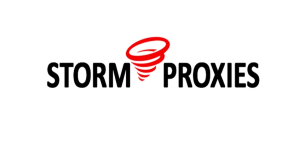
Storm Proxies, despite its limited geographic coverage and lack of a free trial, remains a viable option for users seeking affordable, simple-to-use, and relatively fast proxy services. While it may not offer the extensive features or geographical options of larger providers, Storm Proxies caters to those on a budget who require efficient proxy solutions.
Here’s a closer look at Storm Proxies:
-
Overview:
- Storm Proxies is a small-scale proxy service provider.
- It offers rotating residential proxies, private dedicated proxies (data center IPs), and backconnect rotating proxies (a mix of data center and residential IPs).
- The company manages over 7.2 million proxies.
- Geo-targeting is mainly limited to broad regions (USA, EU, Worldwide), with specific US city coverage in Cheyenne, Los Angeles, and New York.
- Support options are somewhat limited, and the trial period is only 24 hours.
-
Pricing and Plans:
- Storm Proxies provides three types of proxies:
- Rotating Residential Proxies: Based on the number of ports, each supporting up to 50 simultaneous connections.
- Private Dedicated Proxies: Offer data center IPs, with plans ranging from 5 to 400 private proxies.
- Backconnect Rotating Proxies: Priced by the number of simultaneous connections (from 40 to 150).
- All plans come with unlimited bandwidth.
- Storm Proxies provides three types of proxies:
-
Pros:
- Unlimited bandwidth.
- Very affordable prices.
- Easy to use.
- 24/7 support.
-
Cons:
- Very restricted geotargeting.
- Small proxy pool.
- Limited support options.
- Short refund period, with no free trial.
In summary, Storm Proxies may not be the largest player in the field, but its cost-effectiveness and straightforward approach make it a practical choice for scraping, social media management, and budget-conscious users.




